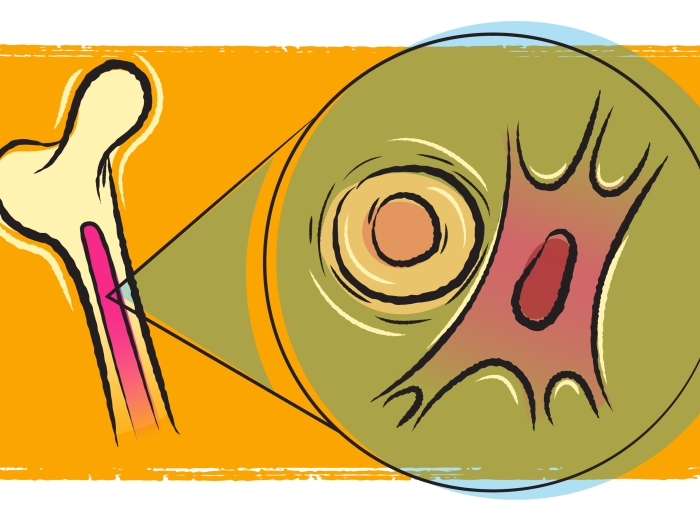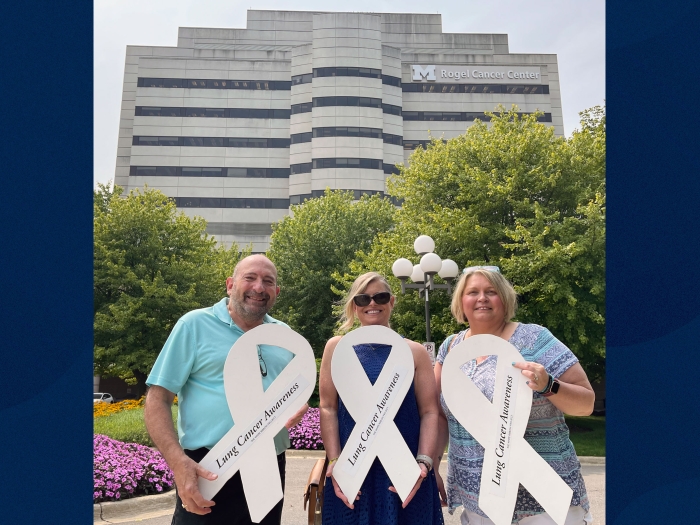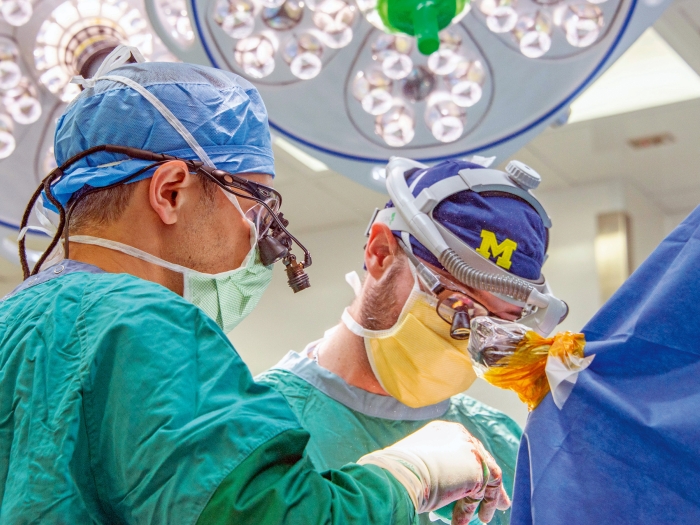U.S. Preventive Services Task Force has updated its recommendations on screening for the BRCA1 and BRCA2 genetic mutations.
1:10 PM
Author |

Breast cancer and/or ovarian cancer survivors should be offered genetic counseling and genetic testing for BRCA1 and BRCA2 genetic mutations, according to new recommendations from the U.S. Preventive Services Task Force.
LISTEN UP: Add the new Michigan Medicine News Break to your Alexa-enabled device, or subscribe to our daily updates on iTunes, Google Play and Stitcher.
They were also recommended for women with Central and Eastern European Ashkenazi Jewish ancestry.
Previously, genetic counseling and/or genetic testing was recommended for women with a family history of breast cancer or ovarian cancer.
The mutations are found in 15% of ovarian cancer cases and up to 10% of breast cancer cases.
"This is something we have already been championing," says Kara Milliron, a genetic counselor at the University of Michigan's Rogel Cancer Center's Breast and Ovarian Cancer Risk Evaluation Program. "And across the country, this may help raise awareness, especially among primary care physicians, about potential benefits to cancer survivors that genetic testing can provide. As was eloquently stated by the task force, this information can be used to take better care of patients as they move forward in survivorship."
If the patient is found to be at risk for other cancers, they can receive appropriate screening or prevention recommendations, Milliron says.
The bottom line is that genetic testing can really aid in keeping patients healthy.
For example, if they have a BRCA1 or BRCA2 mutation, additional cancer screening may be recommended, or the patient may want to discuss having a bilateral mastectomy as a risk-lowering measure.
MORE FROM MICHIGAN: Sign up for our weekly newsletter
Or, if a patient is at an increased risk for ovarian cancer, they may want to consider reducing their risk by having their ovaries and fallopian tubes removed.
For some types of genetic mutations, testing may also uncover opportunities to participate in clinical trials of new screening techniques or prevention approaches, she says.
"The bottom line is that genetic testing can really aid in keeping patients healthy," Milliron says. "We're following them more closely than we would be able to without that genetic information."
Other Key Things to Know
According to Milliron, here are some key points to keep in mind:
- The genetic factors that can influence whether someone will develop cancer are complex, so it's recommended that initial genetic testing in the family be performed in a cancer survivor, when possible. If a known mutation is found, this can inform their future care, as well as provide a starting point to help determine whether other family members may be at increased risk.
- Some patients don't want to undergo genetic testing — and that's a decision that should be honored and respected.
- Employers and health insurance companies are forbidden by law from discriminating against patients based on the results of genetic testing. The Genetic Information Nondiscrimination Act of 2008 is separate from the Affordable Care Act and would not be affected by changes to that law. The Health Insurance Portability and Accountability Act of 1996 (HIPAA) also has protections for genetic information.
"This is a safe environment," Milliron says. "I've been here since 1998, and we haven't seen any evidence of genetic testing being used to discriminate against our patients."
Learn More: How Cancer Genetic Testing Can Save Lives

Explore a variety of health care news & stories by visiting the Health Lab home page for more articles.

Department of Communication at Michigan Medicine
Want top health & research news weekly? Sign up for Health Lab’s newsletters today!





